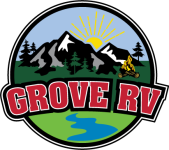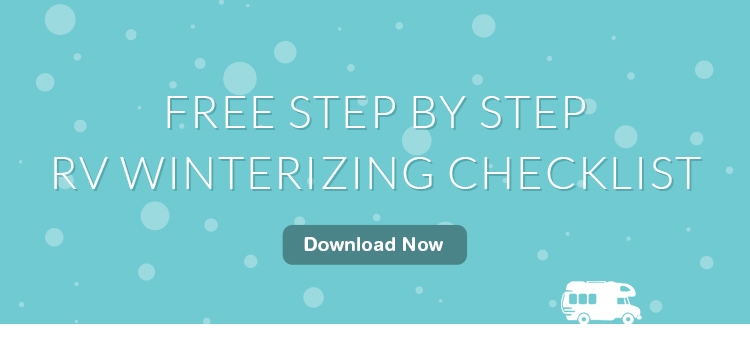If you’re interested in the RV lifestyle and don’t have an RV yet, you’re probably asking yourself whether it’s better to rent vs buy an RV.
Your decision to rent vs buy an RV will depend on a variety of factors.
Some key considerations are:
How often do you plan to use your RV?
Do you have a place to store an RV?
What type of RV would you like?
In this post, you’ll learn the advantages and disadvantages or renting vs buying an RV. After reading this post, you’ll be able to confidently decide which option is best for your family (and your finances)!
It’s also important to keep in mind that while it might seem less expensive to rent vs buy an RV, it could cost more depending on how often you take an RV camping.
Table of Contents
ToggleRenting An RV
RV Rental Advantages
You don’t have to worry about storage and maintenance
It’s a good way to decide if you really want to own an RV
RV Rental Disadvantages
Can be quite expensive
Extra changes can increase costs further
A Good Time To Rent
So when it comes to the decision on whether to rent vs buy an RV, what factors indicate that it’s a good time to rent?
If you’re visiting another country and would like to take an extended road trip there, renting may indeed be the best option. Many Europeans and people from around the world come to Canada and do just this. It wouldn’t make sense for them to come here and buy an RV for a short-term visit, unless they plan an extended vacation here every year. Canada is a huge country and there’s a lot to see, so maybe this isn’t such a bad idea!
For Canadians visiting the U.S., or vice versa, it really depends on other factors, such as whether you plan to do more RVing in the future.
If you don’t plan to RV very often, then renting will probably be much cheaper and easier for you in the long run. You won’t have to worry about making payments, storage, maintenance, or insurance.
Costs of Renting an RV
So, you’ve chosen to rent an RV, what will it cost you? Even a basic RV will rent for at least $100 per night, and can even go over $200 a night, depending on when you’re renting and for how long. You’re not going to get a luxury Class A RV at this price, you will most likely get a basic Class C RV.
Renting an RV can get expensive due to extra charges. Most RV rental companies add a variety of charges, depending on your situation. Additional costs will include extra kilometers (rental companies typically allow 100 kilometres per day). Want to go 250 kilometres per day? That could add almost $50 per day!
An additional driver will cost around $5 per day, as will driving in the U.S., which could cost up to $10 per day. Driving in northern Canada will also be costly, with additional charges for that.
Insurance will also cost you up to $20 per day.
You might also incur one-time charges like a preparation fee, dishes and linens (if you don’t have them), and pickup and drop-off fees. For instance, if you’re late dropping off, or dropping off on a Sunday, that could add to your cost. Plan on going one-way? Extra charges as well.
In addition to your rental costs, you’re going to have to pay for your campsite(s) and fuel, just the same as if you owned an RV.
It’s good to be aware of the costs of renting an RV and to understand that an initial daily $100 to $200+ RV rental fee can get much larger once all of the extra costs are added in. A few trips renting an RV could add up to a sizeable payment on a brand new RV—an important consideration.
Buying An RV
A Good Time to Buy
Now that we’ve examined the pros and cons of renting, let’s take a look at when you should buy an RV!
The main factor in determining whether it’s more worthwhile to rent vs buy an RV mainly depends on how often you plan to use it. If you anticipate RVing every year for even a couple of weeks, you’ll probably be better off buying an RV.
You will need to make sure you have a place to store your RV. Ideally, it’ll be right where you live, but in central Alberta there are a lot of RV storage businesses with very reasonable storage rates. You’ll need to check with your city or town to find out what their rules are regarding RV storage.
Maintenance is another consideration in buying an RV. You don’t want to invest in an RV and let Mother Nature gradually degrade it. If you keep up with your regular RV maintenance, it’s much cheaper in the long run and you can tackle minor issues on an ongoing basis, rather than letting things get out of hand.
Also, do you plan on doing the maintenance yourself, or to let your RV dealership handle it for you? While it will be more costly to let the dealership handle your maintenance, it makes life much easier! RV technicians are trained to handle all sorts of RV issues, and can take care of the problems quickly and properly.
The main cost you’ll face will be your monthly payment for your RV. It’s great if you can buy your RV outright, but if you have to finance, there are options to finance RVs over a longer period (up to 20 years!) than a normal vehicle, so it will keep your monthly costs quite low by going that route. With fixed low finance rates, financing over a longer period is even more attractive.
Of course, when you take your RV out, you’ll have to pay for fuel and overnight camping fees, just like if you decided to rent one. Though, if you’re like many Albertans, you might have a favourite spot you like to go to, so this would cut down on your driving, and if you have a wilderness location you travel to you can cut out camping fees.
Advantages of Owning an RV
Cheapest option if you plan to use it often
Flexibility to trave with it whenever you want
You can customize it to suit you and your family
Disadvantages of Owning an RV
Ongoing storage and maintenance costs
Ongoing insurance costs
Financing costs
Buying Advice
If you’re balking at the high cost of renting an RV, there are ways to keep your costs down: buy your own RV!
One of the easier ways to keep the cost of buying an RV low is to buy a used RV. There are great deals to be had on used RVs, and depending on how old the RV is, the cost savings could be substantial. This might also allow you to buy a larger RV than you ordinarily would have if you’d decided to buy new.
The flip side, the older an RV, typically the higher the maintenance costs will be. If you are more of a do-it-yourselfer, these maintenance costs will be lower, but they’ll still take your time.
Buying a newer RV could still make a lot of sense because required maintenance will be less, and that means more time out camping!
You can also keep your RV ownership costs down if you are able to store your RV on your own property. Depending on where you live, you may not be able to store your RV on your property, especially if you live in a city.
Is it Better to Rent vs Buy an RV?
So, is it better to rent vs buy an RV? Well, the decision is really up to you and is based on your circumstances and what you expect to do in the future.
If you’re not planning to do much RVing or wouldn’t anticipate using an RV much, renting is a better option.
If you’re sure you’ll use an RV regularly, buying makes much more sense and will be the less expensive option in the long run.
Whatever you decide, we’re glad you choose to spend your holidays in an RV! We love to see more and more people enjoying the RV lifestyle.
If you would like to speak with one of our Sales Representatives about your RV purchasing options, please contact us. Also, we invite you to shop our Class A, Class B, and Class C RVs. And don’t forget to check out our fifth wheels!


